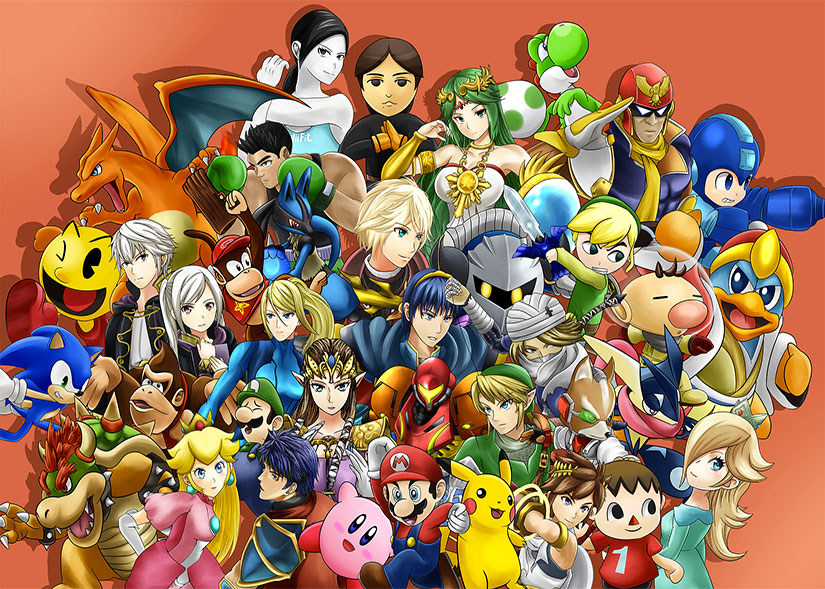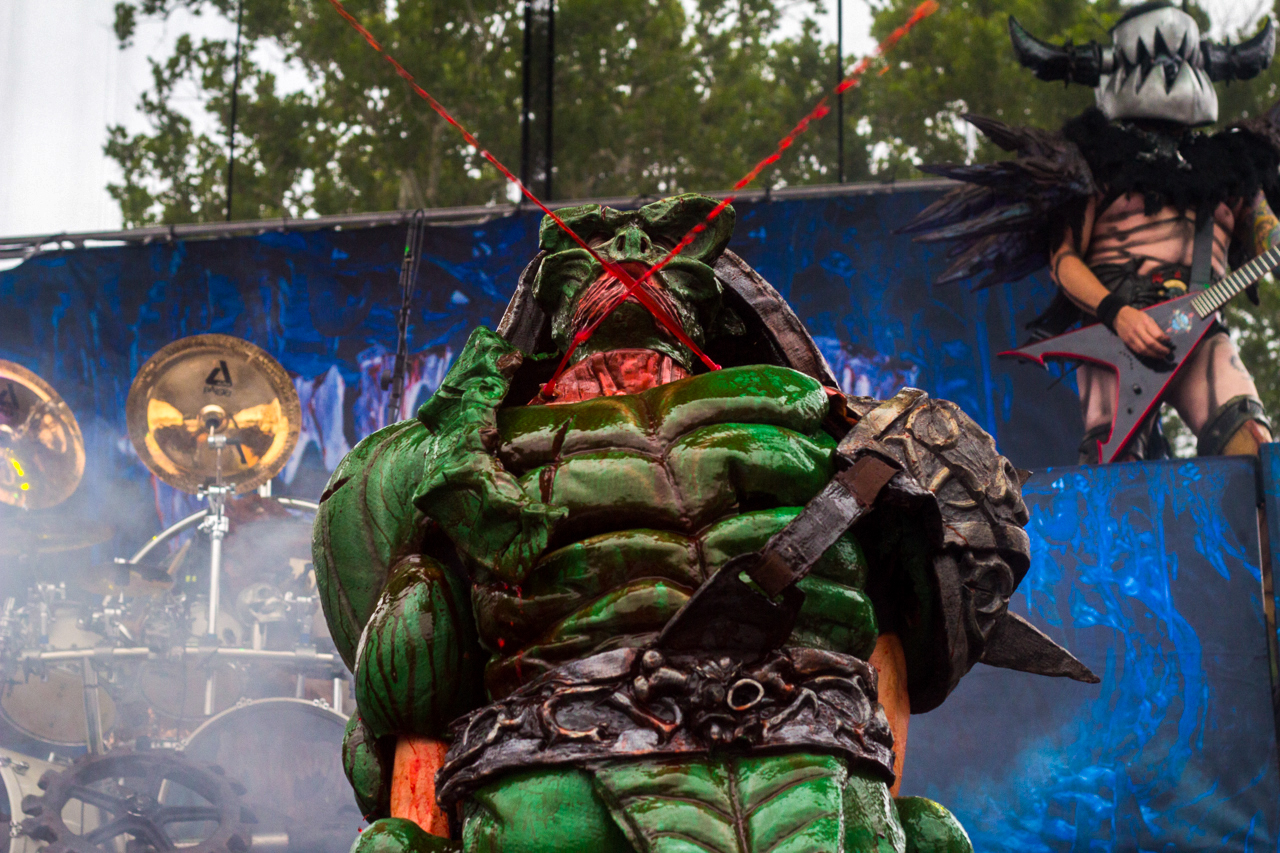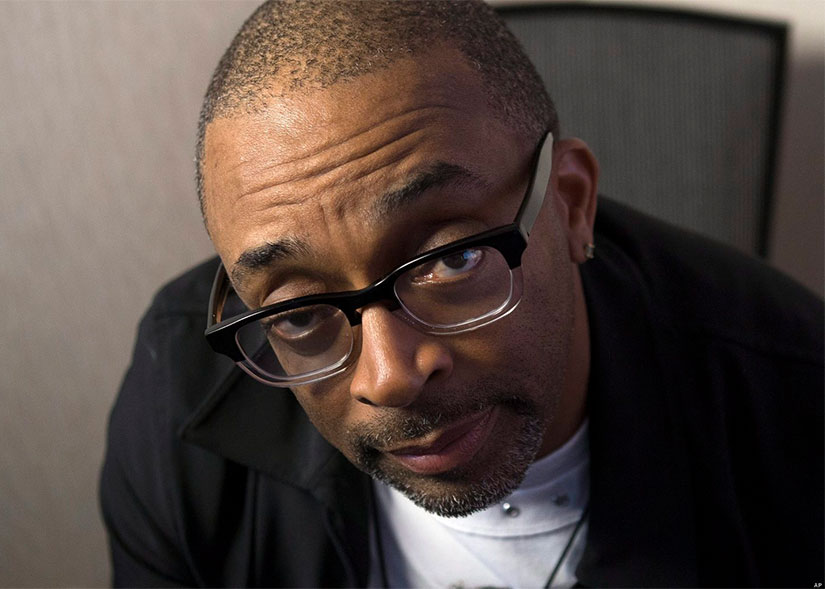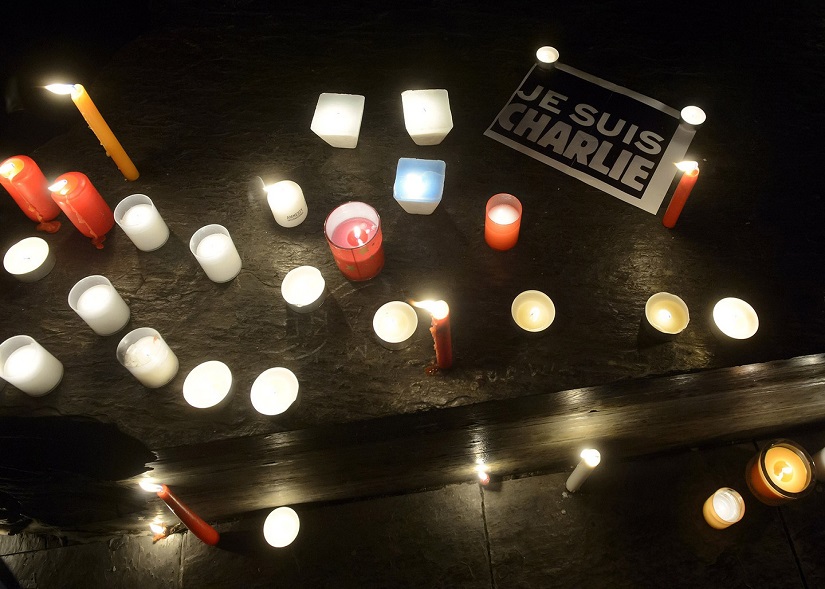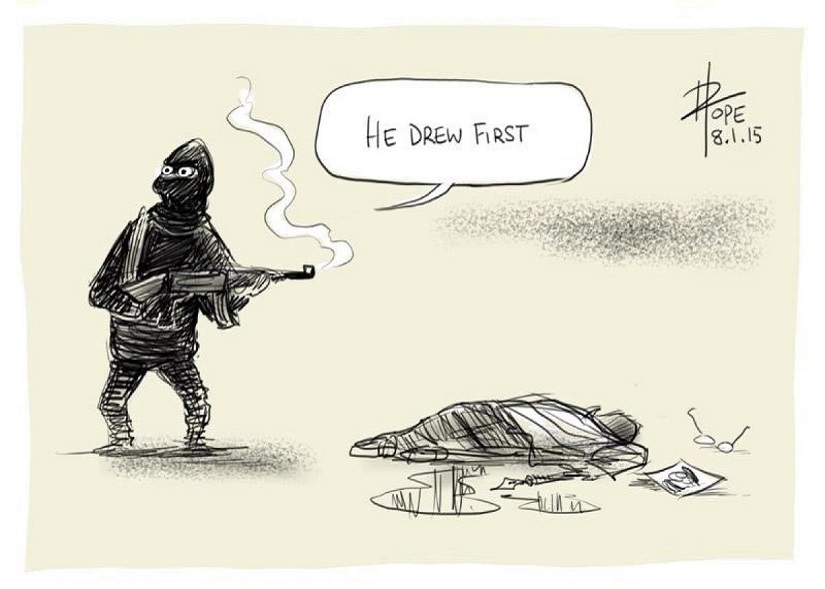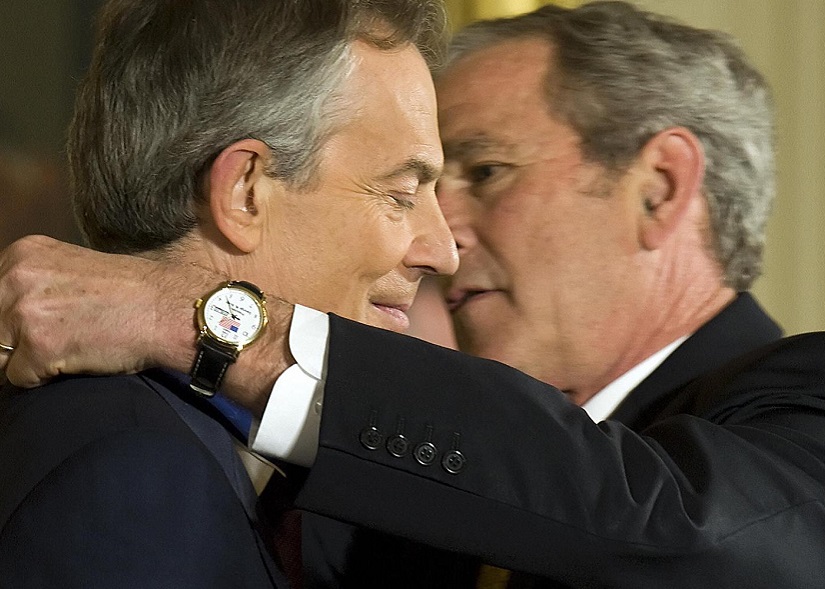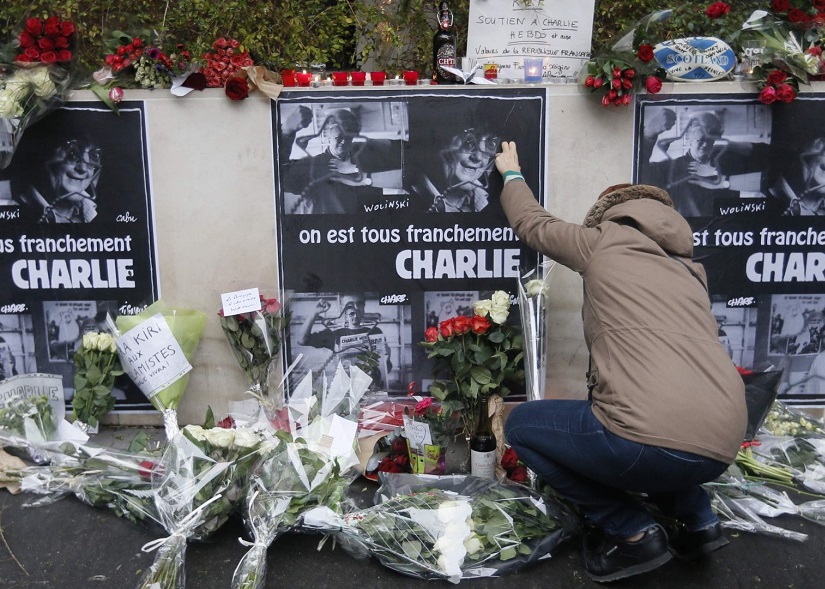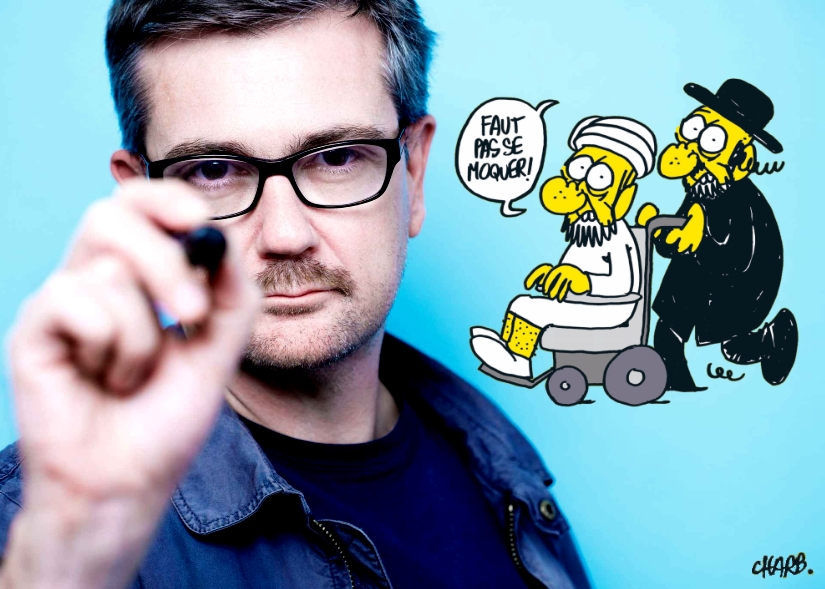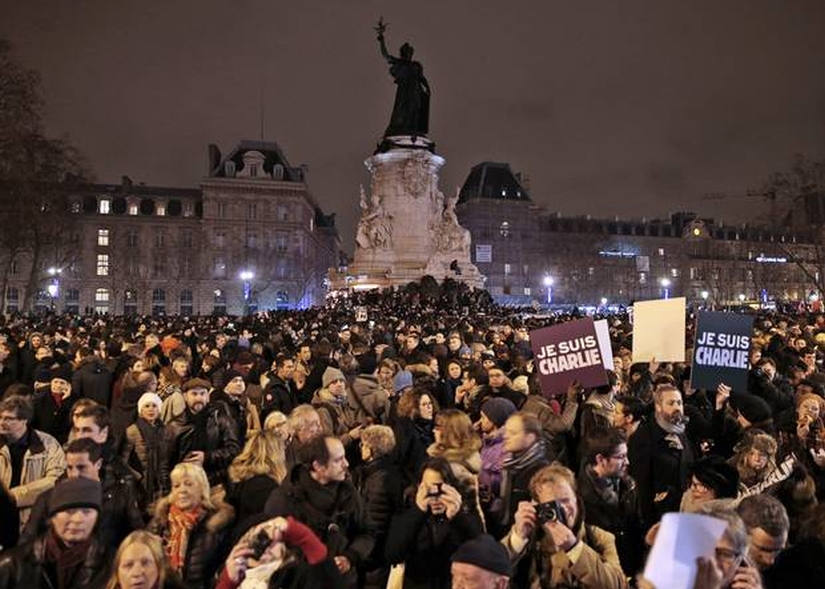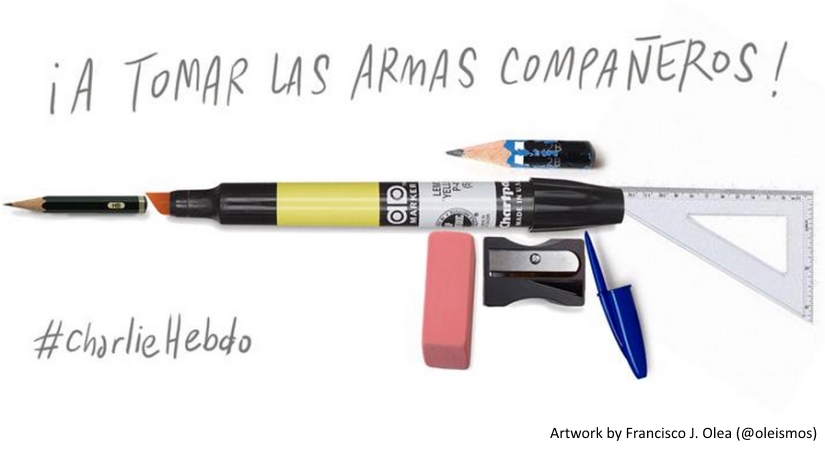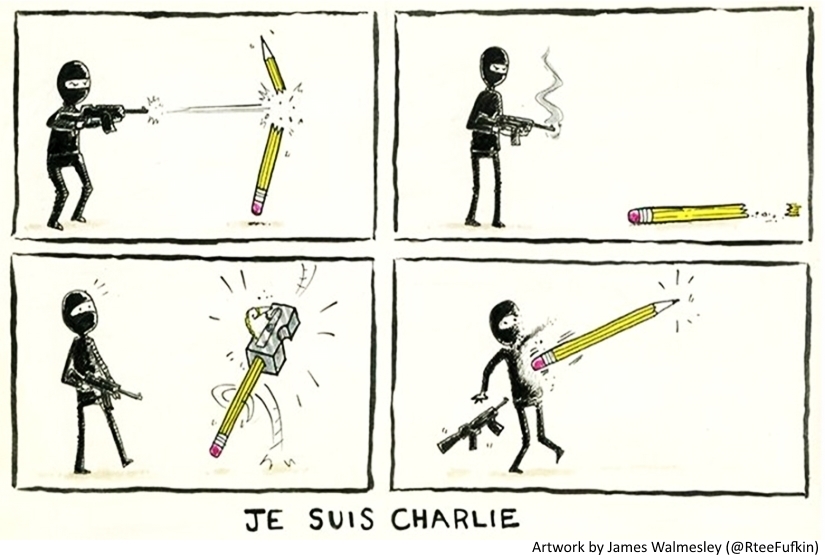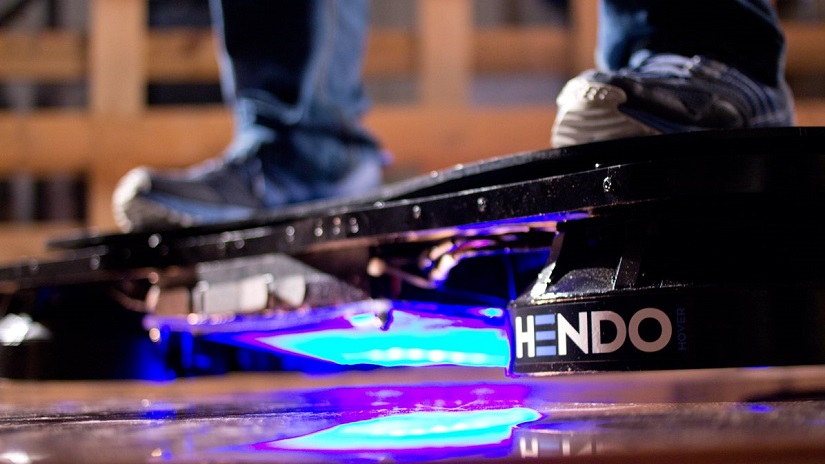Chance the Rapper Puts Faith in Action to Save Chicago
Photo by Bryan Allen Lamb
Holiday weekends during nice weather don't typically go well here in Chicago. It's a sad story told week in and week out, but when the heat rises, so does violence throughout the city. However, Chance the Rapper is doing his part to ensure the Memorial Day weekend goes smoothly without any unnecessary violence.
Following last year's initiative, the highly-influential rapper is once again using his celebrity to bring peace to the city, if only for three days, by promoting various events throughout the city to keep Chicagoans safe alongside Chicago mayor Rahm Emanuel. I implore anybody reading this to attend one of the many events taking place, or at the very least, help spread awareness by using the hashtags seen in the proceeding tweets.
S/O #FaithInAction #PutTheGunsDown #SaveChicago and whoever else is tired of holiday wknds in the summer meaning multiple shooting deaths
— Chance The Rapper (@chancetherapper) May 21, 2015
We finna party and protest and protect all wknd. I watched the city go 42 hours without a reported shooting this same wknd last year — Chance The Rapper (@chancetherapper) May 21, 2015
You can find a map of participating parks and businesses here.
Nintendo Attractions to Appear at Universal Theme Parks
Nintendo is notorious for not sharing their IP efficiently and responsibly. Sure, there have been attempts over the years to expand their properties beyond video games, but each venture has been questionable at best (re: the John Leguizamo and Bob Hoskins-led Super Mario Bros. film, 1989's disastrous The Legend of Zelda cartoon (and CD-i games), The Super Mario Bros. Super Show! cartoon, to name a few). However, after years of stubbornness and not wanting to share their toys, Nintendo has relented a bit in order to find new streams of revenue to the one-time all-powerful video game company with their expansion into mobile devices, the success of Amiibos, and now, the expansion into an immersive, real world theme park.
Today, Nintendo and Universal Parks & Resorts announced their partnership "to bring the world of Nintendo to life at Universal theme parks – creating spectacular, dedicated experiences based on Nintendo’s wildly popular games, characters and worlds." Universal Parks & Resorts (sometimes known as Universal Studios Theme Parks or Universal Theme Parks) have had major success recently with licensed attractions, with The Wizarding World of Harry Potter and The Simpsons-themed Springfield being the most recent success stories.
There's no information as to which Universal Theme Parks will receive Nintendo attractions or whether the partnership will result in simply a ride or a fully-themed area like the aforementioned Harry Potter and The Simpsons attractions. However, both Nintendo and Universal are committed to creating a wholly-immersive experience unlike any other. Here's hoping they create a dedicated Pokemon area, complete with catchable Pokemon.
[Business Wire via Destructoid]
Will Riot Fest Return to Humboldt Park?
This post originally appeared on our affiliate site, Chicago Music. Photo by Geoff Henao.
For somebody that absolutely dislikes music festivals, Riot Fest has been the one consistently appealing and entertaining Chicago festival. A part of what's made Riot Fest so great is its location in Humboldt Park and the organizers' ability to utilize the park's space properly. However, major, lingering damage was sustained during last year's festival, resulting in Riot Fest organizers paying upwards of $150,000 in repairs.
According to RedEye Chicago, Alderman Roberto Maldonado of the 26th Ward isn't too keen on having the festival return to Humboldt Park this year, explaining:
I am exceptionally disappointed at the Riot Fest organizers for the mess they left at the park last year and their shallow and hollow promises to restore the park [...] I don't support them coming back.
At a recent Humboldt Park Advisory Council meeting, Riot Fest organizer Max Wagner assured residents that park repairs are still ongoing seven months after the festival ended. He also let worried residents know that the festival won't grow beyond last year's size, saying the organization is comfortable with capping the festival's size to the level it was at last year. Wagner further explains:
We want to use about half the park. We want to scale it way back. We've agreed to not grow the event any more. We simply don't want to sell any more tickets. We don't want any more people. [We're] fine with capping it where it is.
Unlike Lollapalooza and Grant Park, Riot Fest doesn't have a contract with Humboldt Park. Rather, the organizers are given a permit to hold the event the same week it's scheduled, which is surprising to learn. With opposition coming from both residents and Ald. Maldonado, could Riot Fest realistically relocate this year? It's possible... but unlikely.
[via RedEye Chicago]
Spike Lee Asking for $3 Million Tax Break for Chiraq
Last week, Chicagoans found themselves divided over the announcement that Spike Lee will be directing a Chicago-set film, Chiraq. Myself and the rest of the Ruby Hornet team took a stand against the title, calling the name "misguided, demeaning, and insulting to Chicago." The director is in town for this weekend's CIMM Fest, and recently met with some city leaders to find funding and receive a tax break for the film.
Exactly how much of a tax break is Lee and his production team asking for? $3 million. Alderman Will Burns of the 4th Ward, who also helped structure the film industry tax break system for Illinois, responded to Lee's representatives' request, stating, "You recognize that by seeking public support that gives us a seat at the table." Burns is part of the very vocal group of opposition that finds the film title demeaning. He further states:
With the title Chiraq, that’s branding whole parts of the city. For people who live on the South and West Sides who pay their taxes, are active in block clubs and work to make their neighborhoods better, it’s a slap in the face [...] South Siders and West Siders already walk around with a massive chip on their shoulders. There’s a sense the media only comes to cover dead bodies and not the positive things that happen every day. And why is this guy from New York coming to do a movie about Chicago?
Recently re-elected Mayor Emanuel also met with Lee at City Hall yesterday, voicing his dislike of Chiraq as the film's title to the director. Mayor Emanuel also expressed his concern over the depiction of Englewood residents, where the film will be shot in and located. When asked what Emanuel said to Lee, the Mayor replied:
He said the movie is about the neighborhood of Englewood. I was clear that I was not happy about the title [...] I told him also that there are very good people who live in Englewood who are raising their family. There’s a lot of positive things happening in Englewood, mainly driven by the people that make up Englewood.
With a vocal opposition to the title from both everyday citizens and city leaders, it would only make sense for Lee to truly hear our concern and opinions over why the title should be changed. Lee's a smart man, and I'm sure he'll be open to changing the title from Chiraq once he sees exactly how passionate we are about our reasons... especially if he receives a state tax break to shoot the film here. As Alderman Burns says, "[...] the public should be given a seat at the table, and we need to have a conversation and a dialogue about it. It’s our money, and it’s our city."
[via DNAinfo Chicago]
Is The Media Apologising For Terrorism In The Wake Of Charlie Hebdo?
It's been just over two weeks since the horrific attacks on the Charlie Hebdo offices in Paris, long enough for the initial surges of sadness and anger to die down and be replaced by something resembling more considered reflection. There's been considerable rumination on what the attacks mean for free speech and artistic expression, including by Ruby Hornet's own Hubert Vigilla, questions which eventually spawned a mini-debate of their own over whether Hebdo's representation of Muslims could be classed as racist. Elsewhere, many commentators haved raised the West's perceived responsibility in helping cultivate radicalisation as a result of mismanaged military incursions into the Middle East, notably the 2003 Iraq War.
More recently though, in addition to questions about why the Hebdo murders attracted so much more media attention than the slaughter of two thousand people by Boko Haram in Nigeria, another debate seems to have been gaining traction. This argues that, by the media so consistently using the attacks to raise questions about the West's actions elsewhere or to questions about the morality of the Hebdo covers at the root of the attacks, a process is taking place whereby the attackers themselves are having the responsibility for the murders lifted from their hands and transplanted into the laps of the culture and society which was attacked.
Despite being linked to recent events, the notion of the media being apologists for terrorist atrocities is not new. Its advocates have recently been linking to this blog post by (now deceased) political theorist Norman Geras, written in response to the London bombings in July 2005, a period when the Iraq War was still in its infancy and the world was still trying to make sense of the political and military landscape created in the aftermath of 9/11.
Geras argues that the pervasive culture in response to the bombings has been one of 'I told you so', where every mention of the tragedy of the bombings has to be suffixed with a reminder that it was our actions in the Middle East which must acknowledged as responsible for bringing these horrors to our doorstep. He goes on to mirror such reactions to the shaming of a rape victim rather than the rapist. In his words:
Bob, an occasional but serial rapist, is drawn to women dressed in some particular way. One morning Elaine dresses in that particular way and she crosses Bob's path in circumstances he judges not too risky. He rapes her. Elaine's mode of dress is part of the causal chain which leads to her rape. But she is not at all to blame for being raped.
The fact that something someone else does contributes causally to a crime or atrocity, doesn't show that they, as well as the direct agent(s), are morally responsible for that crime or atrocity, if what they have contributed causally is not itself wrong and doesn't serve to justify it. Furthemore, even when what someone else has contributed causally to the occurrence of the criminal or atrocious act is wrong, this won't necessarily show they bear any of the blame for it.
Others have argued that by using the terrorists' stated motives - blasphemy against the Prophet Muhamed - as a basis for condemning our own behaviour, we are perpetuating what this article by Yasmin Baruchi calls an 'us versus them' narrative, playing into the hands of extremist clerics using division as a tool of radicalisation. By debating whether Charlie Hebdo is racist against Muslims and accepting as a starting point that the cover in question was an act of blasphemy, Baruchi argues that rather than healing wounds, it has opened new ones by encouraging the perception that Muslims are mistreated, targeted and disrespected in Western society.
As author Jeremy Duns so succinctly tweeted on January 10th of this year:
Any fascist can murder cartoonists and simply say they were motivated by Abu Ghraib and somehow Bush and Blair share the blame. Brilliant.
There's a great deal in these arguments I disagree with. As was my response to Mr. Duns at the time, the danger of adopting these attitudes is that it risks encouraging the view that the West is nothing but a blameless victim, existing outside a cause-and-effect universe where events such as the occupation of a sovereign nation and power vacuum left behind can be given a free pass for possible consequences further down the line - even if those consequences involve our society subsequently becoming victims.
That, too, is where my issue with Mr. Geras' rape analogy arises. In this instance, the Charlie Hebdo attacks were undeniably a horrific attack on our culture and our society, yet Geras' metaphor (albeit for a different tragedy) neglects to take into account that such attacks are not isolated incidents but the latest in a long line, as tragic and shameful as the loss of life always is, but also inexorably linked to one another. Before these attacks, there were the myriad atrocities of the wars in Afghanistan and Iraq, as well as drone warfare in Pakistan. Before that, there was 9/11. Before that, there was the first Gulf War, and so on. This chain goes back a very, very long way, leaving scars inflicted by both sides as far back as history records. A more appropriate metaphor might be gang warfare, where both sides alternate between being the victims and perpetrators of violence.
Geras, Baruchi and Duns are correct in calling out commentators who use these tragedies as a means of gaining backdoor support for their political views in much the same way that extremist clerics do to radicalise their followers. Just as there must be a time for self-reflection, it is equally important to honour the victims with a period of apolitical mourning, when we acknowledge the sadness of more needless death without turning it into propaganda. Considering the long and violent history of conflict between Western and Islamic cultures and ideologies, the media's readiness to lay the threat of terrorism solely at the door of the Iraq War is undeniably short-sighted: as Salman Rushdie would attest, Islamic extremism is hardly an invention of the 21st century.
I am, however, far from convinced that to make such a case involves morally absolving the Hebdo killers of the entirety of the blame for their crimes. Myopic and politically motivated, perhaps, but reflecting on how a murderer's background might have led to their crimes is not the same as letting them go free or diminishing their sentence. It is searching for clues as to what led an atrocity to occur and what it might be possible to do to stop it happening again. Perhaps, in the case of preventing terrorism, that means recognising mistakes we might have made in the past. Perhaps it means accepting that sometimes evil exists simply because it can, using outside circumstances as an excuse to justify itself. Humanity's need to find order in chaos can often be misguided or misappropriated, but if by hook or by crook it ends with one fewer instance of bloodshed on either side, I'd say it's worth persevering with.
Nous Sommes Charlie Hebdo: Terrorism's Losing Battle Against Satire and Artistic Expression
Yesterday, France experienced its worst terrorist attack in more than five decades. At least two gunmen, brothers Said and Cherif Kouachi, entered the Paris headquarters of the weekly magazine Charlie Hebdo armed with assault rifles. The terrorists killed 12 people, including Charlie Hebdo editor and lead cartoonist Stéphane "Charb" Charbonnier, several other members of the staff, and two police officers. As of this writing, both of the Kouachis remain at large, though a third suspect, Hamyd Mourad, reportedly turned himself in to French authorities last night.
The attack was prompted by Charlie Hebdo's anarchic satire—a particularly cheeky "nothing's sacred" approach the French call "gouaille"—which mocked the Prophet Muhammad as well as pretty much everyone else. Weeks after the September 11 attacks, the cover of Charlie Hebdo featured Osama bin Laden saying, "No hands," as in a kid on a bike shouting, "Look, Mom: No hands!" Another cover featured Pope Benedict XVI sneakily instructing a pedophile bishop to get into the movie business to keep safe just like Roman Polanski. This brand of satire led to a 2011 firebombing of the Charlie Hebdo offices. As Arthur Goldhammer wrote yesterday in Al Jazeera America, "The whole point of Charlie's satire was to be tasteless and obscene, to respect no proprieties, to make its point by being untameable and incorrigible and therefore unpublishable anywhere else."
Yet symbolically, Charlie Hebdo has come to mean more than what it was. In a sign of solidarity, many in mourning across the world have taken up the slogan "Je Suis Charlie" ("I am Charlie"; this article's headline "Nous Sommes Charlie" means "We Are Charlie"). Because of the audacity of the attack, the terrorists haven't destroyed Charlie Hebdo. Instead they have given a financially shaky magazine with a weekly circulation of 50,000 all the eyes of the world.
Fundamentalism and extremism of various stripes tends to involve a lack of self-awareness and a lack of self-reflection, though mostly fundamentalists and extremists lack a sense of humor. Anyone who takes themselves or their ideology so seriously that they resort to murder or threat of violence after feeling offended is, frankly, an asshole.
I'm not saying that I'm an arbiter of what people should or should not be offended by—your right to be offended is wholly your own—but what I am saying is that there are better and more constructive ways to express your feelings than harming others or threatening to harm others, and if you harm others or threaten to harm others simply because you are offended, you are an asshole. This goes for the people who carried out these attacks, the hackers at Guardians of Peace trying to stop the release of The Interview, the belligerent Gamer Gaters who put commentators and developers in their crosshairs, the person or people who bombed the NAACP office in Colorado Springs, the man who murdered Theo van Gogh, and so on. It takes a special kind of ignorance and cowardice to justify one's violent intentions using religion, country, or some other ideology.
The Charlie Hebdo gunmen reportedly screamed that Muhammad had been avenged after their act of murder, as if Muhammad had nothing better to do than read a French weekly magazine.
Assholes.
What these attacks and threats of violence ultimately do is set back the ideology that carried them out by creating a solid opposition against said ideology. It's the sociopolitical version the Streisand effect, in an odd way. In rallies throughout Europe and in posts online, there are "Je Suis Charlie" signs and #charliehebdo. If Charlie Hebdo was mostly known in France before the attack, it is now an international symbol.
Jon Stewart opened last night's The Daily Show expressing his condolences for the staff of Charlie Hebdo. "I know very few people go into comedy as an act of courage, mainly because it shouldn't have to be that," Stewart said. "It shouldn't be an act of courage, it should be taken as established law. But those guys at Hebdo had it and they were killed for their cartoons." (On The Daily Show's website, "Je Suis Charlie.") The Onion also had a finely neutered and somber take on the tragedy with the headline "It Sadly Unclear Whether This Article Will Put Lives At Risk." It's worth reading in full. Hell, Louis CK even wore a makeshift Charlie Hebdo t-shirt when he performed at Madison Square Garden last night.
The chant at protests in which an especially horrific action has occurred is "The whole world is watching." For a while, out of anger and out of sadness, the whole world is Charlie. George Packer in The New Yorker yesterday concluded his piece with line "We must all try to be Charlie, not just today but every day."
To harm an artist is to fight a hydra.
[iframe id="http://media.mtvnservices.com/embed/mgid:arc:video:thedailyshow.com:09f585e8-8f8f-4727-81d1-0eb972cc325d" align="center" autoplay="no" maxwidth="825"]
Of course, one of the major fears is that the Charlie Hebdo shooting will foment an already ugly right-wing anti-Islamic sentiment that's been building throughout Europe. The terrorists have not just set back their own cause, but they have made things worse for Muslims who are far from radical and simply want to live normal, peaceful lives. On American TV, Bill Maher didn't help matters. Maher claimed on Jimmy Kimmel Live that hundreds of millions of Muslims supported an attack like the one on Charlie Hebdo.
While Maher's "hundreds of millions" claim is probably way off—it's supremely facile to assume the actions of a handful of people speak for hundreds of millions of people—there's at least some precedent behind the claim. Salman Rushdie made a particularly bold statement yesterday in condemnation of the Charlie Hebdo shooting, and he knows firsthand about the horrors of religious extremism. In 1989, the Ayatollah Khomeini issued a fatwa against Rushdie for writing The Satanic Verses. This led to threats of violence against Rushdie, the murder of the novel's Japanese translator, and assassination attempts against other individuals around the world associated with the release or translation of the book.
Rushdie's statement regarding Charlie Hebdo reads as follows:
Religion, a medieval form of unreason, when combined with modern weaponry becomes a real threat to our freedoms. This religious totalitarianism has caused a deadly mutation in the heart of Islam and we see the tragic consequences in Paris today. I stand with Charlie Hebdo, as we all must, to defend the art of satire, which has always been a force for liberty and against tyranny, dishonesty and stupidity. ‘Respect for religion’ has become a code phrase meaning ‘fear of religion.’ Religions, like all other ideas, deserve criticism, satire, and, yes, our fearless disrespect.
Some of the best responses to the murder of Charb and his fellow cartoonists at Charlie Hebdo have come from artists around the world. Time, The Daily Beast, Reuters, Comics Alliance, and numerous other outlets have run galleries of art in tribute to those who died. Though many are touching, most have a kind of anarchic revenge about them, with an emphasis on art as way of overcoming ideological repression. James Walmesley tweeted one of my favorite cartoons about Charlie Hebdo, and Francisco J. Olea tweeted out his call to arms to the artists of all nations. In the face of this act of terrorist negation, here is an overwhelming counterattack of creativity. Don't expect it to end.
Charb and his fellow writers and cartoonists have become heroes. Numerous new outlets have cited a 2012 interview with Charb at Le Monde with a line that speaks to the courage of a good satirist: "I am not afraid of retaliation. I have no kids, no wife, no car, no mortgage. It surely is a bit dramatic, but I'd rather die on my feet than live on my knees."
As for Charlie Hebdo, the next issue will come out on Wednesday with 1 million copies in print. Further, Charlie Hebdo will continue to be published. Patrick Pelloux, a contributor to the magazine, said in an interview with iTele, "Charlie Hebdo will continue because [the terrorists] haven't won. [The victims] didn't die for nothing. There is no hatred to have against Muslims and everyone, each one of us, in front his home, every day must keep the values of the French Republic alive."
Take that, assholes.
These large outpourings of compassion and creativity remind me of George Saunders' Manifesto: A Press Release from People Reluctant To Kill for an Abstraction (PRKA), a short satirical (though ultimately sincere) essay I read whenever the world seems senseless and humanity doomed. It's a fictional press release from an organization comprised of regular people trying to live without harming others and who want to find some modicum of joy and dignity in an existence that seems hellbent against such simple things.
Saunders' piece closes with these words:
To those who would oppose us, I would simply say: We are many. We are worldwide. We, in fact, outnumber you. Though you are louder, though you create a momentary ripple on the water of life, we will endure, and prevail.
Join us.
Resistance is futile.
The flesh may be vulnerable, but people united not quite so, and the pen is mightier still.
We Were Promised Hoverboards
As the New Year chimed in at a crappy bar in Los Angeles, an old colleague of mine and I yelled, “YEAH, HOVERBOARDS!” Since the late 1980’s, people everywhere have been asking, “When are we going to get hoverboards?” Folks, you heard it here first: 2015 is the year of the hoverboard. According to my research (which is honestly the most extensive digging I’ve done since trying to find the world’s best, deliverable pizza dough), hoverboards are coming to a store near you. Or whatever Kickstarter uses as their purchasing system. Maybe PayPal? Whatever, HOVERBOARDS.
Hendo, a company based out of Los Gatos, California, has built the world’s first hoverboard. With more than double their original goal being met in just a short 55 days, backers everywhere are glued to their email inbox to receive their invites to the Hendo hoverboard event on October 15, 2015. Why is the release party almost a year later since it’s invention, you ask? It’s the same date that Marty McFly arrived in the future (could this invention be any cooler?). For just a small lump sum of $10,000 the hoverboard could’ve been (or is) yours. While that’s pretty steep, at least it’s a start. Nerdy websites everywhere are calling it one of the top inventions of the year. What is, in fact in my eyes, the most influential invention since sliced bread, will be on the market in just a short ten months. I could sit here and write about all of the science behind the board and what it actually runs on, but you can do that here instead.
As the year is just getting into full swing, it’s still going to be a grueling 10 months until I am able to enviously watch videos of average Joe’s cruising on their hoverboards via YouTube. There is one more thing though: Hendo has been designing a place for hover-ers to glide, or hover, in. Yeah, A SKATE PARK FOR HOVERBOARDS. A HOVER PARK. THE FUTURE RULES.
[youtube id="plwX5NtF530"]
[youtube id="m5xse0Abulc"]
FDA Will Now Accept Blood Donations from Gay and Bisexual Men
Once upon a time, I used to be a superhero. My lifesaving career began sometime in high school and continued until my early 20s, when I was told I wasn't good enough to save lives anymore. The Food and Drug Administration, at the time, had a restriction in place that didn't allow potential donors to donate blood for 365 days following receiving a tattoo. As a regular blood donor, it was a downer to be restricted to how much I wanted to actually help others, but I could understand. After all, improper tattoo practices can lead to devastating diseases, and the last thing anybody wants is to be given tainted blood because of a faulty tattoo needle. Since then, the FDA eased restrictions on tattooed donors, allowing us to donate 24 hours after receiving a new tattoo.
However, one decades-long restriction is progressing towards being lifted slightly when the FDA announced they will lift the ban on gay donors. Set in place during the beginning of the AIDS epidemic, men who have had sex with other men were given life-long bans from donating blood. At the time, it was a safety precaution to protect from AIDS and HIV at a time when the disease was still mysterious and essentially a death sentence. With advancements in both medical and scientific technology, the ban in recent years was seen as an outdated and unnecessary restriction.
The move echoes the country's growing acceptance of homosexuality, especially in the light of same-sex marriages being close to legal across the entire nation. However, while the move is a move in the right direction, a restriction is still put in place that disallows potential male donors from donating blood if they've had sex with another man in the previous 12-month period.
The Williams Institute at UCLA estimates the change will amount to an additional 317,000 pints of blood annually, which amounts to roughly 951,000 potential lives saved. If you haven't donated blood before, find a clinic or organization that does! Trust me, there's nothing better in the world than being able to tell people you're a superhero and actually mean it.
[via New York Times]


